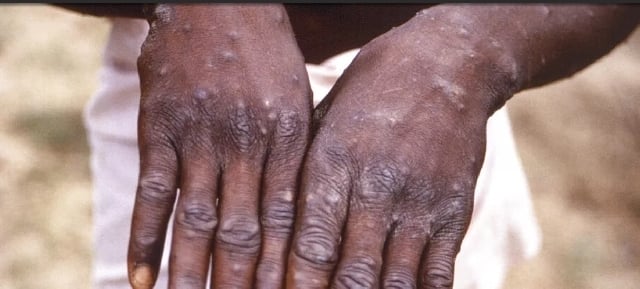The Resurgence of Mpox in Ghana: A Growing Public Health Concern
Ghana is experiencing a renewed surge in Mpox cases, a viral zoonotic disease that poses a significant threat to public health. The Ghana Health Service (GHS) has confirmed 133 infections since the initial detection, with 14 new cases reported recently, raising concerns about the potential for wider community transmission. The disease, formerly known as monkeypox, is characterized by symptoms such as fever, rash, muscle aches, and swollen lymph nodes, and can lead to severe complications, especially in vulnerable populations. The GHS is actively monitoring the situation and coordinating with regional health directorates to implement control measures.
Transmission and Symptoms: Understanding the Mpox Virus
Mpox is primarily transmitted through close physical contact with an infected person, animal, or contaminated materials. The virus enters the body through broken skin, the respiratory tract, or mucous membranes (eyes, nose, or mouth). Symptoms typically appear within 1-3 weeks of exposure and can last for 2-4 weeks. The characteristic rash evolves through different stages, from flat red spots to raised bumps, blisters, and finally scabs. Other symptoms may include headache, backache, chills, and exhaustion. While the majority of cases resolve without specific treatment, severe complications can occur, particularly in individuals with weakened immune systems.
GHS Response and Containment Strategies: Addressing the Outbreak
The GHS has adopted a multi-pronged approach to contain the Mpox outbreak. This includes enhanced surveillance to detect cases early, rigorous contact tracing to identify and monitor exposed individuals, and public education campaigns to raise awareness about the disease and its prevention. The Service is also working closely with regional health teams to manage and contain the outbreak, ensuring prompt identification, isolation, and treatment of suspected cases. Medical teams and resources are being mobilized to affected areas, and the GHS stands ready to deploy additional support if the situation escalates.
Public Health Advisory: Protecting Yourself and Others
Public cooperation is crucial in curbing the spread of Mpox. The GHS has issued a public health advisory urging individuals to practice strict personal hygiene, including frequent handwashing with soap and water or use of alcohol-based hand sanitizers. Avoiding close physical contact with anyone exhibiting Mpox symptoms is essential. Individuals are advised to report any suspected cases to the nearest health facility immediately for prompt diagnosis and medical attention. Timely reporting and seeking medical care are critical for effective management and prevention of further transmission.
Challenges and Future Directions: Strengthening Prevention and Control
The resurgence of Mpox highlights the need for continued vigilance and proactive measures to prevent and control the spread of the virus. Challenges include ensuring access to diagnostic testing, providing adequate medical care for infected individuals, and strengthening public health infrastructure to respond effectively to outbreaks. Sustained public awareness campaigns are crucial to dispel misinformation and promote responsible health practices. Collaboration between health authorities, communities, and international partners is essential to address the Mpox outbreak and protect public health.
Global Implications and Preparedness: A Collaborative Effort
The Mpox outbreak in Ghana is part of a broader global resurgence of the virus, emphasizing the need for international cooperation and coordinated efforts to enhance surveillance, improve diagnostics, and develop effective vaccines and treatments. Sharing information and best practices across countries is essential to strengthening global preparedness and response to Mpox and other emerging infectious diseases. The international community must work together to address the underlying factors that contribute to the spread of zoonotic diseases and invest in sustainable solutions to protect global health security.














